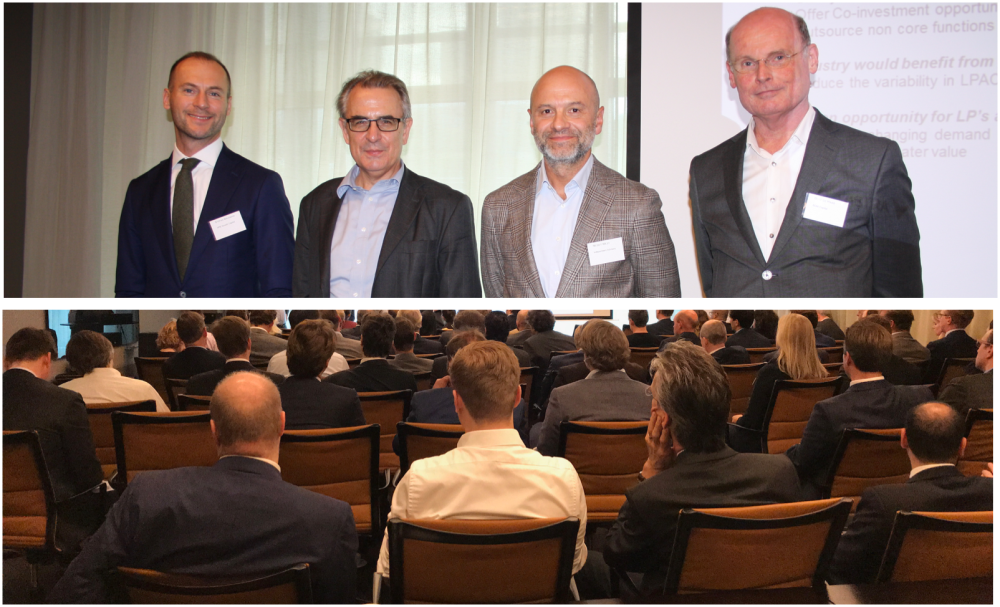

On Friday 13th October, 80 ACG Holland members and guests joined Vistra for a panel discussion on best practices in private equity fund governance. The discussion focused around the findings of a worldwide survey carried out with LPs and GPs in the first part of 2017. The survey was conducted by Vistra and IFI Global and addresses the manager and investor perspective. You can download the summary findings here.
The themes selected for ACG Holland’s lunch time discussion were; transparency, the evolution of LPACS, co-investment, outsourcing and preference in fund structures. The panel was represented by Stefan Brugman, Bert de Haas, Nesbit West and was facilitated by Simon Osborn, CEO of IFI Global.
Highlights of the discussion:
Transparency is the big theme that cuts across all discussions and it is a constant balancing act between what LPs want and what GPs are prepared to give them. Stefan indicates that transparency is not a concern for him. He is more concerned about the resources that it takes up to provide the information required because it needs a larger team which has a knock on effect on fees. The question was, do LPs really need all this information on the structure and operation of funds?
Evolution of LPACS
The role of the LPAC is to act as an intermediary between the LPs and the GPs. Most interesting in this discussion is the issue of proportionality – selection by investor size, sector, country and region. Getting to the right composition needs to be objective but you also don’t want too large a committee – so proportionality is helpful and it gives opportunities to smaller investors who want to be on the board alongside the larger parties. Key to success though is to ensure that the people seated in the LPAC have something to add and can contribute to a lively discussion. As a manager, you should ask yourself, what do we expect from the LPAC, what responsibility do we want to give them – and then decide who you want to invite.
Co-investment – a growing trend
This was the most controversial part of the study. Co-investment is growing at a rapid rate. Some LPs love it because it helps drive transparency but many don’t as they do not have the time or resources to invest in it and consequently feel like a second class LP. However, is it really useful for the fund manager to spend time looking for large opportunities that facilitate co-investment? It increases exposure, but it also increases the risk. Agreed that what is key for co-investment is to have LPs that can swiftly act on a deal ….though recognizing that really only the large ones can do this. Interesting to follow over the longer term is whether funds with co-investment generate higher returns.
Outsourcing
Agreed that outsourcing is good and efficient – but GPs need to have a good overview of what is being outsourced. Managers find it hard to imagine not outsourcing because it brings independence. However, Nesit experienced few managers using external providers with most of his funds being done in-house.
How will the LPAC look in five year’s time?
LPAC mandates are being extended. It used to be limited to advice and consent but LPACs can now also take on initiatives and add items to the LPAC agenda. So it is growing more towards a supervisory board committee, although without a supervisory role. As soon as LPACs are involved in investment and divestment decisions then you pass a line – the panel were in agreement that this should not happen and that LPACs should not have a say in investment decisions. Also from a liability point of view investors/ LPACS are reluctant to get involved in investment and divestment decisions.
For more information about the discussion or the report please contact Stefano Haver on +31 88 560 9239

The premier conference for middle-market M&A will return to the ARIA Resort & Casino in Las Vegas on April 27–29, bringing together the most influential private equity dealmakers, investment bankers, lenders, M&A partners, and strategic acquirers—all under one roof.
